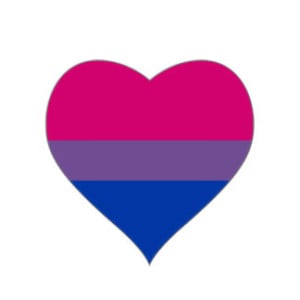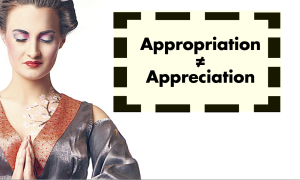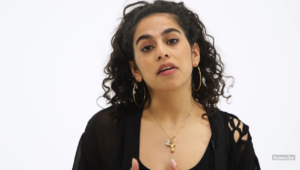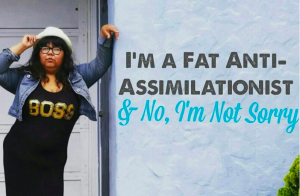
Credit: PressTV
Contemporary social movements and the nonprofit sector have been fighting for decades for progressive social change in the US. While we’ve accomplished much without a doubt, our movements have failed to reach a transformational level of change.
In part, this is due to how we, those fighting for social change, usually do not address our own privilege on an interpersonal and organizational level and do not prioritize supporting and lifting up marginalized voices to the social change table.
And until we do, our work will not achieve lasting structural changes – a world where those being impacted are leading the fight for their own communities, supported by allies.
People in power oppress, exploit, and silence marginalized groups because they can get away with it. By supporting the empowerment of the marginalized group to stand up for themselves directly, we are more able to shift the power dynamics in our society and show that it is not so easy to ignore them and their situation in society.
But first, we must wrestle with our own privilege – privilege that has ultimately led to our social movements being led by primarily led by those of privilege.
To be clear, there’s nothing wrong with privileged people leading in of itself. But the leadership for the majority of social change organizations are men and women who are white, college educated, and from well-off families and do not come from the communities they work with.
It is this massive skewing that is problematic and has a serious impact on our work in individual organizations and across our movements.
Those that are marginalized – who are often of racial and ethnic minorities, lower education levels, and low-income backgrounds – often lack or have limited access to the social capital, leadership, and resources that are critical to achieving social transformation.
And this is precisely where leaders can leverage their privilege and power to prioritize and proactively support marginalized voices into becoming leading voices in our social movements.
To be clear, we are not judging privileged people for having their privilege. We are all born into a society that grants us power in some ways and marginalizes us in others ways.
But we must be accountable to how we hold our privilege with integrity. For what we do with the power we do have is up to us.
And as Spider Man’s Uncle said, “With great power, comes great responsibility.”
Why We Often Don’t Grapple With Our Own Privilege In Social Movements
We don’t usually think about our privilege either on a personal or organizational level. On a personal level, we’re often driven to become change agents due to seeing the marginalization of a group in society, sometimes experienced directly or second-hand.
We are often so focused on the marginalization of the communities we work with, we fail to recognize how our unaddressed personal privilege affects our interpersonal relationships with our colleagues and constituencies.
We often pour our hearts and life into our work, driven by our passion and commitment, sacrificing our personal life and well-being along the way. And so many leaders and organizations are stretched so thin, with small budgets and ever growing need. So to ask ourselves to do the emotional personal work on our privilege can feel like way too much.
We also tend to surround ourselves and work with other people who share our life experiences and come from similar backgrounds. When this happens, there’s little to challenge our understanding of the world. Privilege, by its nature, makes us blind to certain things that those without privilege (including our consistencies!) experience regularly.
On an organizational level, we are so focused on our niche issues and operate in silos. Too often, we perceive organizations within our own movement as competitors rather than collaborators and don’t even know who relevant organizations in other movements are. But no issue is an island on to themselves and increasingly the need to take a intersectional approach to social change is becoming evident.
And because of how hard the fight is for our own issues, we often fail to see how certain issues are given more play and attention due to how society prioritizes and values them. If every issue is only championed by those effected by it, no issue can be resolved. With so many pressing problems to solve in our society, the issues that often rise to the top are those with the most resourced or connected champions.
The closer you are to the center of our culture and society the more others “see” or “connect” to your issue. That’s great but if we want to truly change our society, we need a system that gives each problem attention and resources.
All this makes having conversations about privilege (always difficult conversations to have in the first place) that much harder.
Whether or not we want to, we are always contributing to this culture that perpetuates privilege and marginalization – unless we are consciously addressing it.
For that is the nature of privilege. As Verbal Kent in the movie, Usual Suspects, said, “The greatest trick the devil ever played was to convince everyone that he didn’t exist.”
Because you can’t fight what you don’t see. Ironically, our privilege often keeps us focused on how we feel marginalized and away from how we have power – power to create change.
So in order to create the lasting social change we seek, we need to consciously channel our understanding and empathy for the ways we and others are marginalized into using what privilege and power we do have to support those who don’t.
Because feminist men can more successfully make sexism “not cool” with other men than feminist women can.
Because straight people can do more to normalize the existence of gay people with homophobic straight people than gay people can.
Because able-bodied people can use their positions of power to create more disability-friendly buildings and infrastructure.
People listen more to their peers than to other people. It’s a powerful way to influence people’s thinking and behavior. It may seem unfair or frustrating. But nonetheless, it’s true.
We need to leverage that.
How Privilege Show Up In Social Movements
To help us move from the rhetoric to the concrete, here are some common ways privilege shows up on an interpersonal level is:
- People from the communities we work with may be hired as front-line direct service staff but seldom get the professional development training and support to move into upper management and be successful.
- Staff from the communities we work with are often judged for their “professional deficiencies” and mistakes as being due to their background, which is often poorer and of less schooling – which is closely tied to class and race. But more privileged staff who make mistakes are more often given the benefit of the doubt that they will be able to grow and develop professionally.
- The definitions of being “professional” and “successful” are closely tied to being able to navigate the white, upper-class, highly educated world. Those who can navigate it are often hired to work in communities at the margins but rarely have the skills to understand the nuances of the constituencies they serve. Meanwhile the real lived experience and expertise of those who come from these communities is devalued because they lack the social ease and familiarity with the privileged world.
Examples like these drive a much larger trend of funding, research, and access to social capital that creates a self fulfilling prophecy.
People and organizations on the margins are not invested in to lead the change their communities need. So they continue to struggle with being under resourced — making it less likely that they will receive resources in the future.
At an organizational level, privilege shows up in when:
- Leaders speak on behalf of marginalized voices in the movement instead of asking why they are not at the table speaking for themselves directly.
- Leaders raise how we should be more intersectional and include different issues in the discussion but don’t ask how those issues are being integrated into their organizational priorities and culture.
- Survivor-led/Community-led organizations are often given praise but secretly seen as “unprofessional” and “difficult to work with.” Over-praising and under-resourcing these groups or expecting them to do more with less is a movement set up. It eases our conscience around privilege but does not shift long-term dynamics in our movements.
- The leadership development that gets offered is not done in a culturally competent way and as a result is paternalizing and reinforces negative perceptions of leaders at the margins.
Concrete Ways You Can Leverage Your Privilege To Create Change
To help get you started in brainstorming how you can use your power to intentionally change the culture of privilege and marginalization in yourself and your organization, here are some ideas:
1. Create open, reflective spaces for staff to explore how different types of privilege play out in their interpersonal relationships with each other and their constituency.
Set the tone from the beginning so people understand they are not being judged and blamed for having privilege.
Focus on how without consciously examining and questioning staff’s assumptions about each other and the organizational culture, they are likely to be unintentionally perpetuating it.
And presumably nobody wants that.
2. Explore what makes people uncomfortable about owning their privilege and power, even for social change, and identify what the impact of that discomfort is.
People who are hired to fight “The Man” and challenge those in power often have a very hard time accepting they have power too. This often leads to managers failing to acknowledge or take responsibility for the power they have over other staff they manage.
This can show up with them being an absentee manager, micromanaging to overcompensate for their absence or lack of clarity with their staff, and/or expecting them to know what to do always and getting upset when they don’t.
3. Create open, exploratory spaces to push staff’s thinking about the intersection of their primary issue with other social issues.
Think about the margins of your work and movement. Which issues are often pushed to the back burner in an effort to respond to other issues?
What if those back burner issues were place at the center and integrated in the current work your organization is tackling? What kind of solutions can you create internally?
4. Acknowledge that your life experiences has both catalyzed and supported you in fighting for social change and will at some point in different ways, limit what you can do in any specific role.
It is often our anger at injustice we experience that moves us to action yet it is the power you wield that often holds the most transformative seeds for change.
How do you balance your desire to fight for change with the communities that stand to benefit most from your privilege? Especially when our life experience doesn’t often allow us to even see these needs?
Asking the questions is the first step. Become a student of privilege and learn from others around you.
5. Engage in your own personal development in service of your leadership.
At any organization, the leader sets the limit for what is possible within the organizational culture. How much we are willing to challenge ourselves and are comfortable with failing will strongly influence how much we let our organizations engage in addressing privilege and letting go of the shame and guilt too often attached to conversations around privilege.
At the same time, being focused on experimenting, learning from both successes and failures, and adapting to what is learned can unleash a high level of success and transformation for both the leader and the organization
6. Support the funding and organizational development of organizations led by leaders that come from those communities in other movements who are doing promising work but are struggling.
To make sure traditionally marginalized voices are present at the social change table, we need to grow and re-distribute power and resources to organizations we don’t lead.
For example, I use my time to organize and mobilize others with privilege of masculinity while investing resources in the areas of gender justice that are the most marginalized — reproductive justice, transgender justice, and disability justice.
***
These are just some ways that we are wrestling with own privilege at Brown Boi Project, a community of masculine of center womyn, men, two-spirit people, transmen, and our allies committed to transforming our privilege of masculinity, gender, and race into tools for achieving racial and gender justice.
It’s not easy and we don’t get it right 100% of the time. But we keep it at the front of our consciousness in both our individual work and organizational work.
And it has made a huge difference in the work. In the last year, we have raised and donated more than $200,000 to support the efforts of organizations and leaders that are fighting on behalf of their communities at the margins of gender justice.
That is the kind of leadership that will transform our community and world. If every organization in this country created a 10% line item to fund the margins of their movement, we would be in a radically different place.
The Brown Boi Project’s goal is to have that line item be 40% of our budget.
We are in a time of deep change and that change must start with each of us. We have tremendous power that until now has remained untapped.
Go out and use yours to change the world today.
What are some ways you can leverage your privilege to create social change? Please share in the comments!
B. Cole is a Contributing Writer at Everyday Feminism. She is the Founder & Project Director of Brown Boi Project, a community of masculine of center womyn, men, two-spirit people, transmen, and our allies committed to transforming our privilege of masculinity, gender, and race into tools for achieving racial and gender justice. Follow her on Twitter @bespokebutch.
Sandra Kim is the Founder & Executive Director of Everyday Feminism. She brings together her personal and professional experience with trauma, personal transformation, and social change and gives it all a feminist twist.
Search our 3000+ articles!
Read our articles about:
Our online racial justice training
Used by hundreds of universities, non-profits, and businesses.
Click to learn more



















